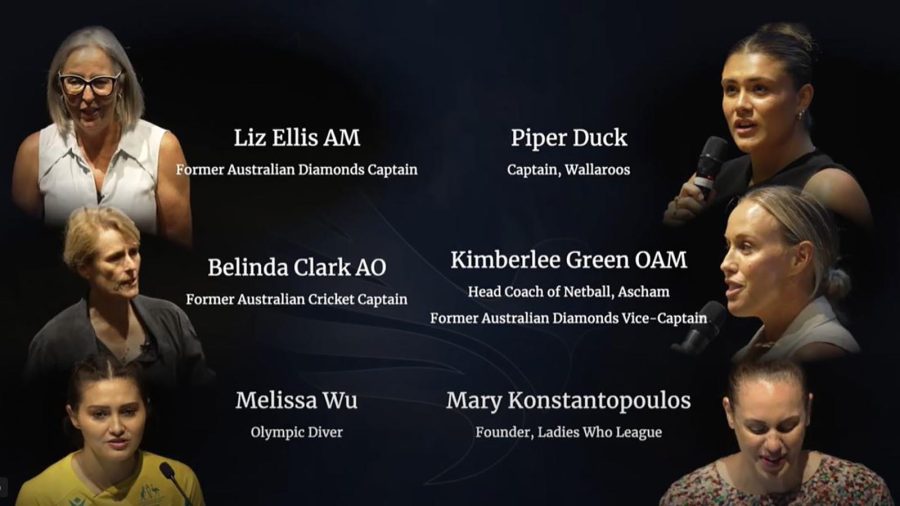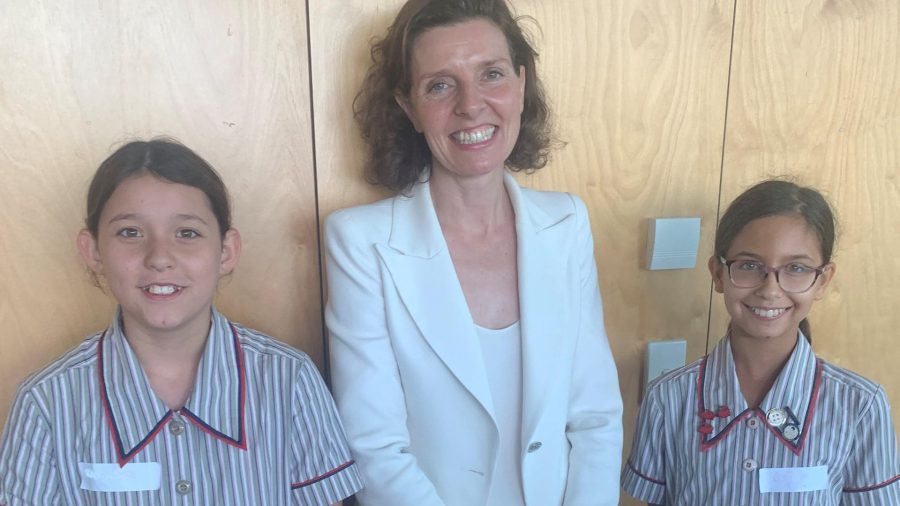The Ascham
Leadership Scholarship
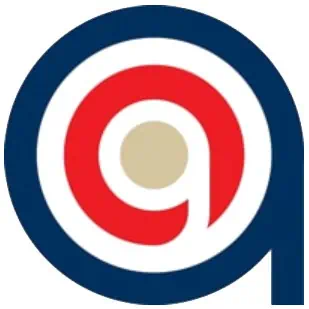
A unique opportunity
The Ascham Leadership Scholarship is an opportunity for young Old Girls to undertake research or humanitarian aid work aligned with their professional degree and development, either overseas or within Australia. It is generously endowed by a past Ascham family.
The Scholarship includes up to $10,000 for travel and living expenses within Australia and/or overseas. It is expected that the successful applicant would maintain strong contact with the School during the term of the Scholarship and afterwards so that Senior students may hear of her experiences.
It is open to all Ascham Old Girls between the ages of 20 and 30 years before 31 March 2023.
How to apply
Applicants should email their CV and a cover letter which includes their detailed reasons for applying for the Scholarship to the Ascham Community Relations Manager by end of October 2023.
The successful applicant is notified in late November and invited to accept the Scholarship at Senior School Prizegiving in early December.
2023 recipient
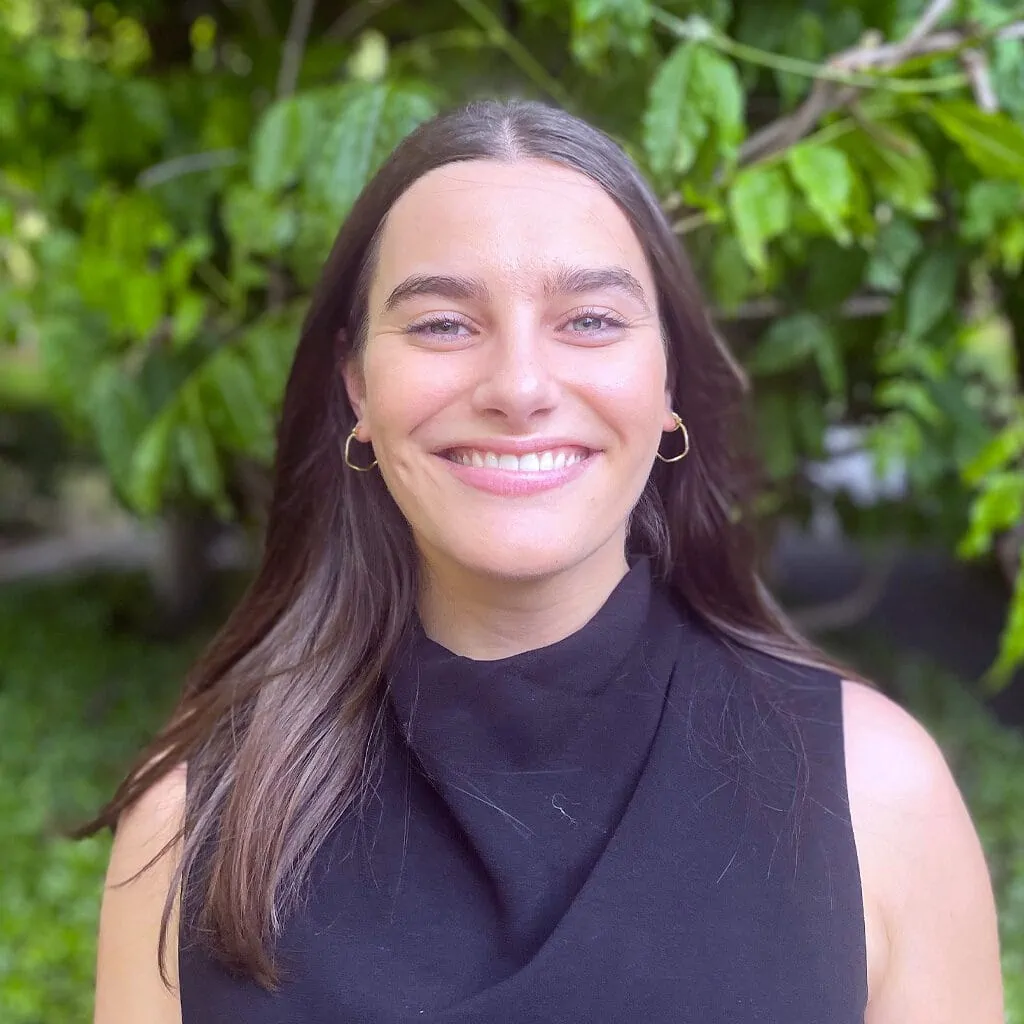
2023 Ascham Leadership Scholarship Recipient—Leili Friedlander
Leili graduated from the University of Sydney’s Law School with a Master of Criminology in 2021.
Since graduation, Leili has interned at Youth Justice within the Department of Communities and Justice (DCJ). Following this, Leili went on to work in Strategy, Policy and Commissioning in DCJ’s Child & Family directorate. Here, she travelled around the state on consultation to assist with the NSW Government’s 2022 legislative response to the Family is Culture Review Report. Leili currently works as a Consultant at Inside Policy, an Indigenous run firm that specialises in social research and evaluation.
It was her work in co-authoring the Submission to the NSW Joint Select Committee on Coercive Control in Domestic Relationships that became the inspiration for EmpowHER Education.
Founded in 2022, EmpowHER Education aims to provide women and young girls with the knowledge, tools, and information to identify, and understand domestic abuse. Leili is passionate about changing Australia’s domestic abuse narrative through education. With a strong focus on justice, Leili’s passion is working with vulnerable communities and people. Leili is committed to driving social change, specifically for women and their children.
Past recipients
2022: Sophie Lanigan (2013)
Sophie used the Scholarship to interview leading architects, designers, curators and studios from around the world to better understand their approach to sustainable architecture and design. The interviews formed the basis of the primary research required for Sophie’s PhD in Architecture, undertaken at the University of Cambridge in 2022. They also provided her with an unparalleled opportunity to broaden her professional network.
Sophie says, ‘The climate crisis has never been more urgent – the 2021 IPCC Report declared that we are now at “humanity’s code red”. With the built environment accounting for almost 40% of all carbon emissions globally, architects and designers must take a leadership role in the race to net zero.’ By undertaking her PhD, Sophie aims to encourage a shift in the narrative, whereby the cultural production of architecture adopts a position of leadership and effects positive change towards a sustainable future that benefits the planet.
2020: Sam Weekes (2010)
Sam used the Scholarship to extend his veterinarian skills, travelling to the USA to visit the World Pork Expo in Iowa and a Swine Vet Centre in Minnesota; then on to the Pig Vet Society Congress in Rio de Janeiro, Brazil. This trip enabled Sam to undertake research on the use of antimicrobes in the swine industry. Antimicrobial stewardship is the practise of using antimicrobials to help minimise the development of antibiotic resistant bacteria. Greater industry knowledge of antimicrobes in Australia will enable a smooth transition away from antibiotic usage, while at the same time keeping Australia’s pigs healthy, and consumers happy.
2019: Geena Dunne (2011)
Use: to continue with her charitable initiative, the Cova Project–providing high school girls in South Africa and Malawi with menstrual cups—small silicone cups that girls can use during their period. These cups are quite literally a miracle for girls who can miss up to 50 days of school a year because they either can’t afford sanitary products or the toilet facilities are either non-existent or inadequate. Menstrual cups will enable the girls to remain competitive in school and the workforce, allowing them to live their lives unimpeded by menstruation.
Watch Geena talk about her Cova Project initiative.
2018: Dana Beiglari (2005)
Use: to learn from global initiatives championed by leaders in the USA and UK who encourage financial inclusion in disadvantaged communities with a view to supporting best practice in Australia. Dana’s experience at Legal Aid has shown her the need to create a society in which everyone can access the mainstream financial system, such as basic insurance and credit products to meet their needs, regardless of their income and social status. Her position as a consumer advocate means she is well placed to understand financial inclusion strategies abroad, share these lessons at home and apply them in her daily work.
2017: Harriet Body (2005)
Use: to fund ongoing research into collaborative creative projects between artists with and without intellectual disability. Harriet travelled to the US, UK and parts of Asia to visit specialised studios that support professional artists with disability to expand her networks and research into the field of disability art. This trip informed her curatorial concept for an exhibition in Sydney of both national and international artists and artist collaborations with and without intellectual disability that further explored the importance of collaboration for the advancement of the disability art field.
2016: Alanna Rennie (2010)
Use: to undertake her Master of Chinese Law at Tsinghua University and complete her thesis on enforcement of plant breeder rights in China. Alanna used the Scholarship as an opportunity to generate interest in Australia’s agricultural future and the opportunities in China. Before embarking on her Master’s, Alanna travelled to Europe to meet with a number of breeding companies and breeding associations across the vegetable, ornamental and fruit sectors, who operate and have strong interest in the Chinese plant variety market.
2015: Verity Smith (2007)
Use: to undertake an internship at Reprieve, an international organisation that works against the death penalty. Verity worked at the Louisiana Capital Assistance Centre (LCAC) where she assisted a team of lawyers by providing legal representation and humanitarian assistance to people on death row. She was given responsibility for serious matters integral to cases which involved regular phone contact with clients and assistance on prison visits to meet with clients.
2014: Grace Mortlock (2005)
Use: to travel to Venice to be part of the Architecture Biennale in 2014. Grace met and collaborated with international architects, and had the opportunity to write reviews and a series of short vignettes for Architecture AU. The trip to Venice is an opportunity that would not have been possible without this Scholarship.
2013: Sarah Cohn (2009)
Use: to fund a medical placement in Tarime, Tanzania. Sarah undertook a six-week placement at the Tarime Government Hospital, with the aim of experiencing the healthcare system of a small, impoverished East African town, and learning about the medical, social and environmental needs within the community.
2012: Georgia Driels (2007)
Use: to fund an international internship, travelling to one of UNHCR’s refugee camps with an interdisciplinary team including staff from the Centre for Refugee Research as well as delegates from Amnesty International, UNHCR and the Refugee Council of Australia. While conducting reciprocal research within a refugee camp, Georgia participated in and helped to provide a number of educational courses including Human Rights training, project development, community engagement and support.
2011: Sephora Sultana (2005)
Use: to fund an internship in the United Nations’ International Criminal Tribunal for Yugoslavia. Sephora’s goal was to continue her research on the importance of prosecuting rape and sexual assault crimes which occur during periods of conflict, with particular emphasis on the role of victims in the prosecutions.
2010: Lara Franzen (2002)
Use: to spend time in the occupied Palestinian territories with ActionAid, working to fight global poverty and injustice. In particular, Lara led the development of a proposal to the European Commission to design a three year project which re-uses waste water for agriculture and therefore increases food security in the Palestine territories.
Related articles
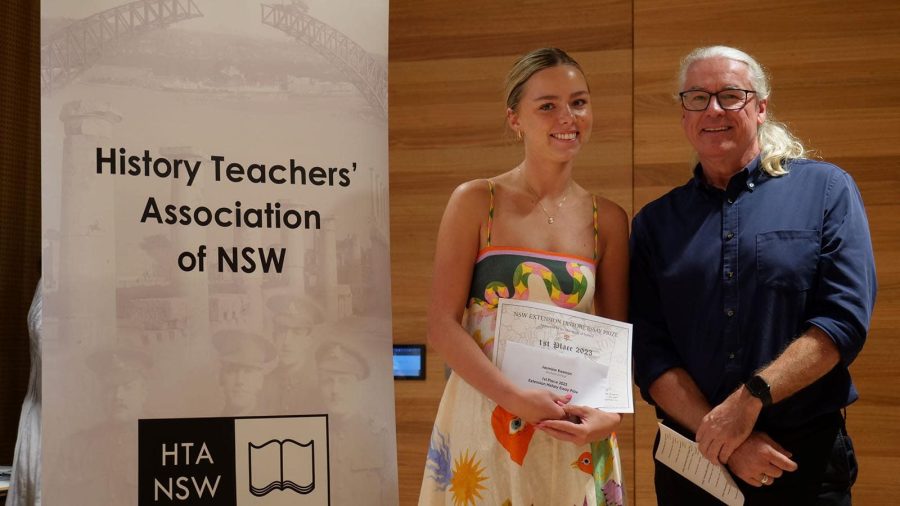
Jasmine Wins History Prize
